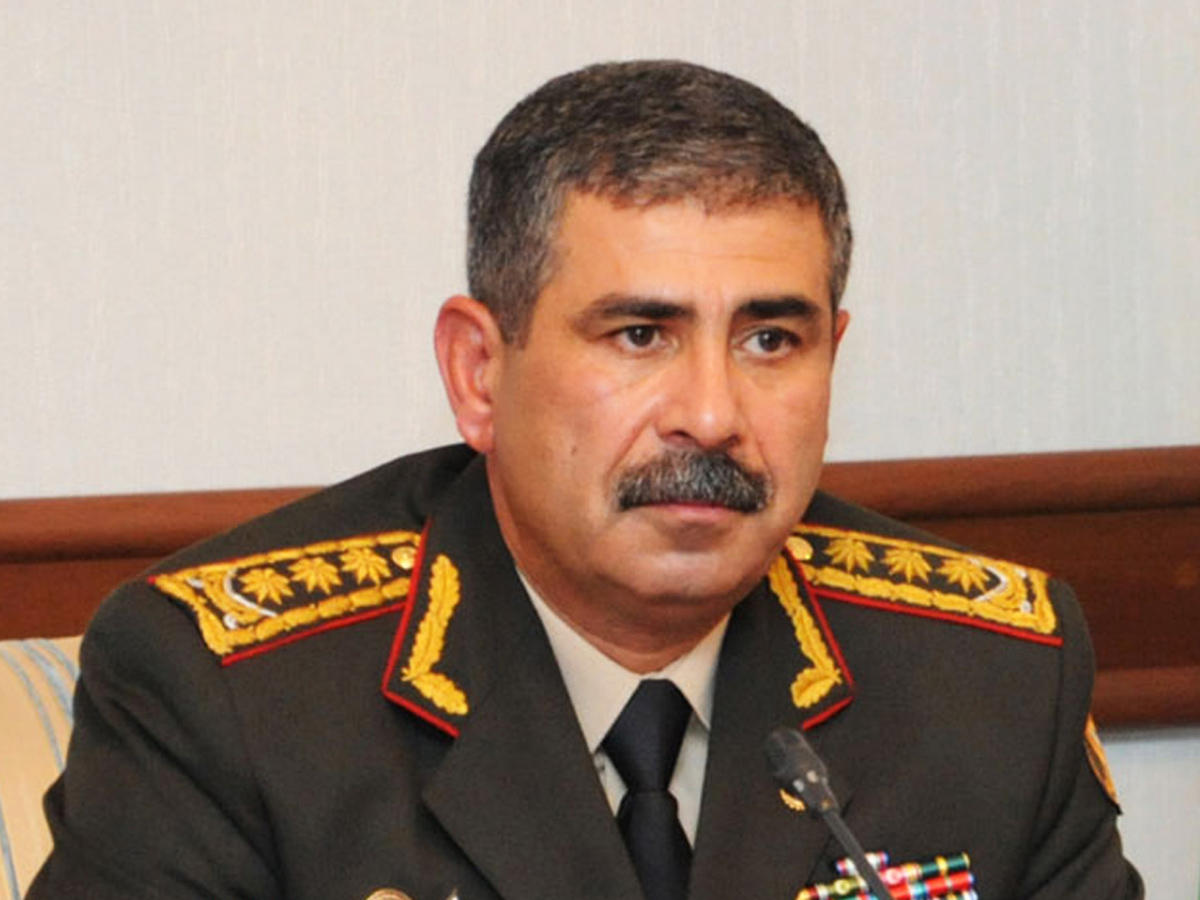Defense minister: Talks on Karabakh conflict settlement bear no fruit

By Rashid Shirinov
Talks on the Nagorno-Karabakh conflict settlement are not bearing fruit while tensions are growing in the zone of military operations, Azerbaijan's Defense Minister Zakir Hasanov said in an interview with RIA Novosti.
“The tensions have grown in recent years in the zone of military operations where Armenian troops are deployed against the Azerbaijani armed forces. The single reason for this is the occupation of Azerbaijani lands,” Hasanov said.
“All the rest is a consequence. The occupied territories are not liberated, and negotiations are not bringing any results.”
The conflict between the two South Caucasus countries began in 1988 when Armenia made territorial claims against Azerbaijan. As a result of the ensuing war, in 1992 Armenian armed forces occupied 20 percent of Azerbaijan, including the Nagorno-Karabakh region and seven surrounding districts.
The 1994 ceasefire agreement was followed by peace negotiations. Armenia has not yet implemented four UN Security Council resolutions on withdrawal of its armed forces from the Nagorno-Karabakh and the surrounding districts.
The minister went on to say that Azerbaijani Armed Forces have anti-missile weapons capable of shooting down missiles of Iskander systems deployed in Armenia.
“We have 50 times more missiles. I take full responsibility for these words. Imagine what the retaliation on infrastructure and military targets will be if they will use them!?” Hasanov stressed.
He said that there are several types of tactics for using troops. “However, a few questions arise. First, what type of Iskander missile system is it? There are many types of them. Second, in what condition is this Iskander missile system? Third, who manages this system? The fourth question is whether they [Armenian Armed Forces] will be able to use this system,” he added.
“We, as military people, always consider the worst option, and we are ready for it,” he said.
Zakir Hasanov added that though the missiles he was speaking about were purchased not in the Russian Federation, their quality is not worse.
He noted that Azerbaijan’s Armed Forces held military drills and combat shooting, adding that the result was excellent.
“To date, we are confident that we will be able to protect our settlements and armed forces,” he said.
Financing of Azerbaijan’s Armed Forces increased by 17-20 percent in 2017, said Hasanov.
“Although there is a crisis in the whole world and it didn’t bypass us, but didn’t hit hard. As the Minister of Defense, I am interested in financing the army – last year, it only increased,” said Hasanov.
Therefore, the leadership of Azerbaijan, headed by President and Supreme Commander-in-Chief Ilham Aliyev, pays big attention to strengthening the army, equipping it with modern weapons, noted the minister.
“We have moved to a new qualitative level. In recent years, the task has been set to modernize the army, to strengthen it,” added Hasanov.
The skills and combat readiness of the Azerbaijani army are growing year by year, as the country’s Armed Forces regularly conduct military exercises. The Azerbaijani army is supplied with modern weapons and technical equipment for maintaining a high level of combat capability.
The army building process is of particular importance for Azerbaijan, as twenty percent of the country's territory is under Armenian occupation and the country is in a state of war with Armenia.
Azerbaijan was ranked the 59th among 132 countries in the 2017 Military Strength Ranking compiled by a U.S.-based Global Firepower survey center.
Azerbaijan left behind many CIS and regional countries, including Georgia, Armenia, Tajikistan, Kyrgyzstan, as well as other countries such as Portugal, Hungary, Belgium, Croatia to take its place among the first 59 strongest armies of the world.
-
Follow us on Twitter @AzerNewsAz
